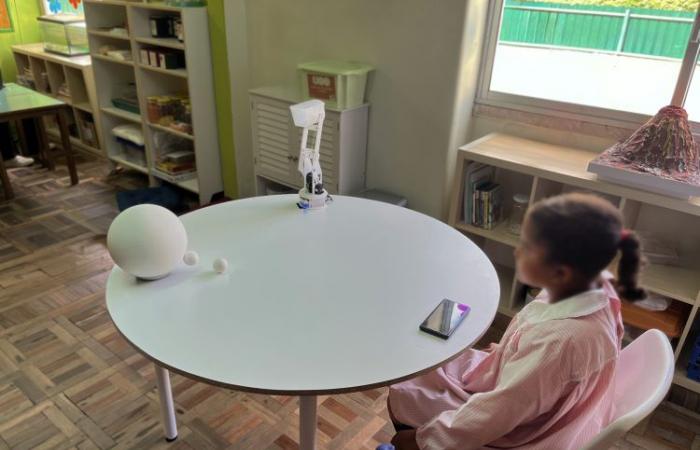A team of researchers from Instituto Superior Técnico presented a study in March with children between five and ten years old to observe how they would react to seeing other children being excluded by robots during a collaborative game. Even as spectators, the children felt excluded and powerless, but they demonstrated greater levels of cooperation and mutual help towards other children. Surprisingly, children remain curious and show interest in playing with the robots, even after watching the ostracization scenes on video.
In the study, researchers filmed a video in which two robots and a child played with a ball. Initially, they passed the ball between themselves, but, during the experiment, the robots passed the ball to the child less and less. By manipulating these interactions, the researchers simulated a scenario of social exclusion, where the robots excluded the child from the activity. “This method allowed us to understand how children react when observing exclusion in a controlled experimental environment”, says the main researcher, Filipa Correia, researcher at the Interactive Technologies Institute.
The researchers recorded various reactions from the children after the study. “The results indicate that children who observed exclusion reported lower levels of belonging and control compared to children who observed inclusion”, added Filipa Correia. Furthermore, they demonstrated more prosocial behaviors towards other children than those who witnessed inclusion, suggesting a search for acceptance and strengthening bonds after the exclusion experience.
Despite the negative effects, children surprisingly expressed a willingness to play with the same robots after the study, which may indicate a complex interaction between adverse experiences and the novelty effect of playing with robots.
The study also raises important ethical considerations about the manufacture and use of social robots in environments with children. The team highlights the need for responsible practices in developing child-friendly robotic technologies. “If Siri were accidentally able to understand a group of children except one, even if this was not an intentional feature, the child could feel excluded, which could change their feelings and actions towards other children and adults,” exemplifies Filipa Correia. This awareness could guide policy makers, designers and educators, ensuring a safe and beneficial integration of robots in educational and social contexts.
This study was led by the Interactive Technologies Institute and INESC-ID, in collaboration with Reichman University (Israel) and had the support of the Foundation for Science and Technology, the Horizonte Europa DCitizens Project and the PRR eGames Lab project.
Daniel da Costa Ribeiro
Science Communicator







